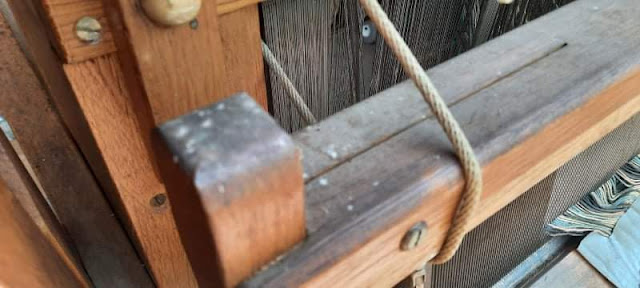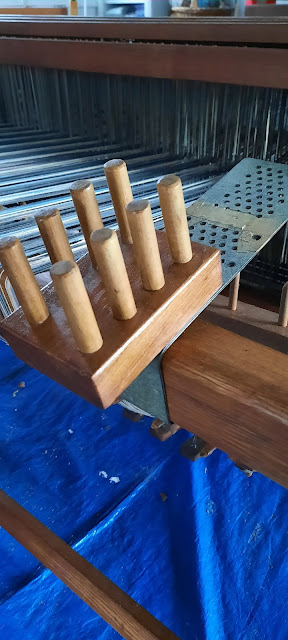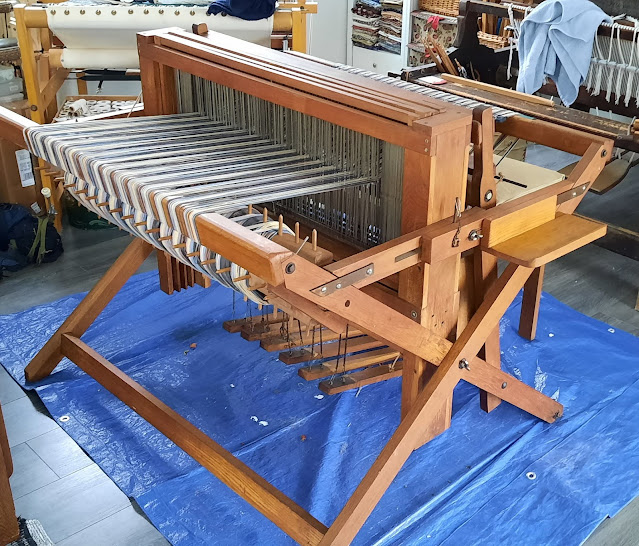Life has not been kind to my sister lately.
First she stood by her husband for many, many months of insufferable chemo and radiation and intensive surgeries while he had the challenge to beat cancer. He made it through with his wonderful wife by his side.
Then she suffered the unfortunate happenstance of brain damage from a concussion and brain bleed when a deer hit them while riding on their motorcycle. It took a long time to recover from that.
Now this year has been even worse. She had been diagnosed with breast cancer. She went through a series of intensive radiation procedures and some surgical biopsy removal procedures of tissues and lymph nodes. She has undergone physical therapy to regain muscle movement after these procedures this summer. Her skin was burnt from the process, and her muscles were damaged and needed to heal. Her husband was right by her side, just like she was for him.
This week she had her six-month checkup
and has been pronounced CANCER FREE!
I admire her strength and her ability to get through all of this. I don't think I could be as strong as her.
~~~~~~~~
Many years ago, I had introduced her to to the addiction of rug weaving. Together we restored a huge old Newcomb Weaver's Delight Rug Loom. It is quite a rugged piece of equipment. But she makes it sing. It actually rattles her entire house when she uses it. It takes forceful pushing of the beater backwards, and then beating strongly forwards to change the sheds, and pounds the rug together firmly on the beams. It takes a lot of OOMPH to create rugs on this huge piece of machinery.
Sadly, since she has undergone this challenge of the breast cancer, this loom has become too much for her. She looks longingly at it, but she just isn't in that type of shape to tackle this huge hunk of textile machinery.
Enter into the scene
a lighter-weight but sturdy loom
called a Kessenich!!!
Through a really crazy roundabout way, this littler loom has come into my possession. FOR FREE!!!! I don't need another loom in my she shed, but my sister certainly could use it at her house.
We hauled it home, along with all of it's accessories. Any weaver with any knowledge of Kessenich looms would drool at the fact that not only did we get the beautiful 36" red oak loom, we also got the red oak warping rack, the tension box, the bench, the crank, and the two little side tables that attach to each side of the loom.
The only problem is, it had been in storage for about 30 years and some things were in disrepair. It was quite grubby and dirty and needed a complete going over.
That's where the love of a sister comes into play. I needed to restore this beautiful loom and while doing so, I was thinking of my sister and praying for a healthy and complete cancer-free diagnosis at her check up this week.
The First Step was to scrub down all of the wood with Murphy's Oil Soap. I put the two littlest grandchildren into operation with sponges and rags and let them do all of the lower portions of the loom where it's hard for me to reach. They scrubbed and they scrubbed, while I changed out bucket after bucket full of black filthy water, bringing new sponges and rags, with fresh new clean water. This is not the first time Clayton has helped me with a loom, and it certainly won't be the last.
The grandkids really enjoyed being part of the process. Watching the wood change from the filthy dirty gray wood to the beautiful fresh red oak as they scrubbed down each piece. It sure was handy to have little ones do all the tiny corners and edge's along the floor. By spreading a tarp we didn't have to worry about any drips on the floors in the she shed.
Little Claire was really happy to be helping. She likes doing anything that we are involved in. And you can just tell on her face that she is having a lot of fun. She kept saying over and over "I got to make it clean.... I got to make it clean!" They especially liked that we were doing it for their Great Auntie Schmoo.
I let the loom dry off for about a week, to make sure all of the moisture was out of the wood. I wanted it to be good and clean before I started applying the next product. Chris Gustin from
Homestead Weaver Studio had introduced me to this product years ago. It's called Howard's Feed and Wax. It's available in many big box home improvement stores near their stains and wood refinishing department. Otherwise, I'm sure it can be bought online. It contains beeswax and orange oil. It's exactly what this wood needed.
This time I had to get down on the floor and get into every little crack and crevice and nook and cranny. I may be old and creaky at 61 years old, but I can still get on the floor and work on looms when I am inspired to do so. The stuff smells wonderful and it's very pleasant to work with. It's not like stinky old varnish or polyurethane. This just rubs into the wood and restores the beautiful color and pulls out the grain to show off such a gorgeous finish.
Look at the difference here from the right to the left on the shuttle race of the beater. From the dried out old moldy wood to beautiful red oak.... amazing!
After I gave it one good coat. I let it soak in for a couple days and dry thoroughly. I tried to work as gently as I could around the warp that was existing on the back beam of the loom. I wanted to try to preserve it and keep on weaving what warp was still on the loom.
Then I gave it a second complete coat, lovingly rubbing it in and watching the finish come alive with the golds and reds and browns that are inherent of red oak. What a beautiful loom.
Then I advanced any of the old exposed warp forward through the entire mechanism of the loom to the front. It was already threaded through the heddles and the reed, in a complicated pattern. I wanted to save it if I could.
I cut off anything pulled forward that was not usable. I repaired a few broken ends and untwisted a few pieces.
I wasn't sure if the warp would be strong enough to weave on. I wouldn't know that until I tied it all up and tensioned it off. I spent an afternoon getting it all ready and decided to give it a try. Lo and behold it was strong enough to keep weaving on! I knew the warp was old but it seemed pretty sturdy. I wove up a header for the beginning of a rug. Nothing broke. I grabbed up some rags and started weaving with dark colors that would show off the beautiful threaded pattern. I beat harder and all of the threads held!
It's one thing to get a FREE LOOM... but to get a THREADED UP loom is even better!!!!
P.S. to buy this loom today, it's over $3,000.00 for just the loom, and almost another $1,000 for all of the added accessories we got with it.
We did some repairs to some of the tie-up chains and then we lubed all of the interior parts that you can't see in this picture. There are four horizontal roller tubes of conduit pipe constructed deep inside that need to pivot smoothly.... as well as pulleys that are hidden in each side castle wooden structures. We carefully took things apart, sprayed it down with LPS spray and Tri-Flow bicycle chain lubricant. These products work so much better than WD-40 and doesn't attract as much lint or dust. Soon we got the loom operating smoothly and the harnesses could now raise and fall back effortlessly without binding or jamming up. Yay!

I sure wish people would not put masking tape on looms. Older versions of masking tape are almost impossible to get off of wood. I tried every product that I had including UnDu, acetone, GooGone and hair spray. The masking tape labels are just going to have to remain. They were directions to remind the previous weaver which way to start while pressing down on which treadle. Although the taped numbers are helpful, it would be a lot easier to write it on a piece of paper to keep alongside of the weaver than to mar the finish of this beautiful loom with masking tape. Ugh.
I typed up the correct information with illustrations and made little laminated pages for my sister. She can keep them in her notes and set them alongside of the loom to weave from.
We did some repairs to the little side tables. They clamp onto each side with a little twisted knob into the slit of the folding mechanism. These are very handy to set shuttles on as you're working back and forth with patterns. They are also a good spot for a scissors, or a threading hook. Some people make the mistake of setting a cup of coffee on them. Not only does it leave a ring, but if you beat a little too hard with the beater it could knock your coffee down onto the floor!
Here's a side view of the beautiful woodwork after we were done cleaning it up and restoring it. The threading is all completed and the loom is in weaving condition.
The cushion on the bench seat was in rough shape. I found a piece of suitable upholstery fabric that we covered it with and stapled it down under the lid. The lid lifts up on this bench and allows storage of tools or materials. Then the bench can lifted and carefully set underneath the loom out of the way with the legs spanning the six treadles underneath.
I know this is going to be much easier for her to operate, than the big contraption that she currently has now. She can sit gently down the bench and beat with one arm if she wishes, or the other arm, depending on which one has the better strength or which one gets tired out first. I think this is just what she needs.
The back beam has enough warp threaded on it for I think another three or four rugs. Maybe when she's done with doing rugs, she may want to switch to towels? I don't know, that will be her creative choice because she now will have all of the tools to do it herself. The warping rack, tension box and a threading hook.
One of the best features of this loom is that it doesn't need to take up a huge portion of her living room. The other big loom that she has right now takes up at least a quarter of the space in her living room. This Kessenich is specially designed that it can be folded up and set tight against the wall out of the way when not in use. Fully warped and even with a rug in progress. It can be stowed away in as little as about 18 inches of depth along a wall. How ingenious is that?
Steve put the legs up on a furniture dolly and we rolled it out into the garage until it can be picked up and brought to her home in Michigan.
~~~~~~~~
For my weaving friend readers who are curious, this is the threading and tie up of the loom to do a basic rosepath twill. This is the pattern that was already threaded up in a nice stripe with harmonious colors.
Woven just with an easy treadling of 4&1, 1&2, 2&3, 3&4 over and over, makes this beautiful arrow type design....
This example drawdown shows all of the types of patterns that could be woven with the same threading by just changing the treadling of the feet. There are so many things that you can do just what this one threading:
This was a labor of love...
and I truly love my sister.
I will always be here for you, Linda.
Love, your big sister Karen


































